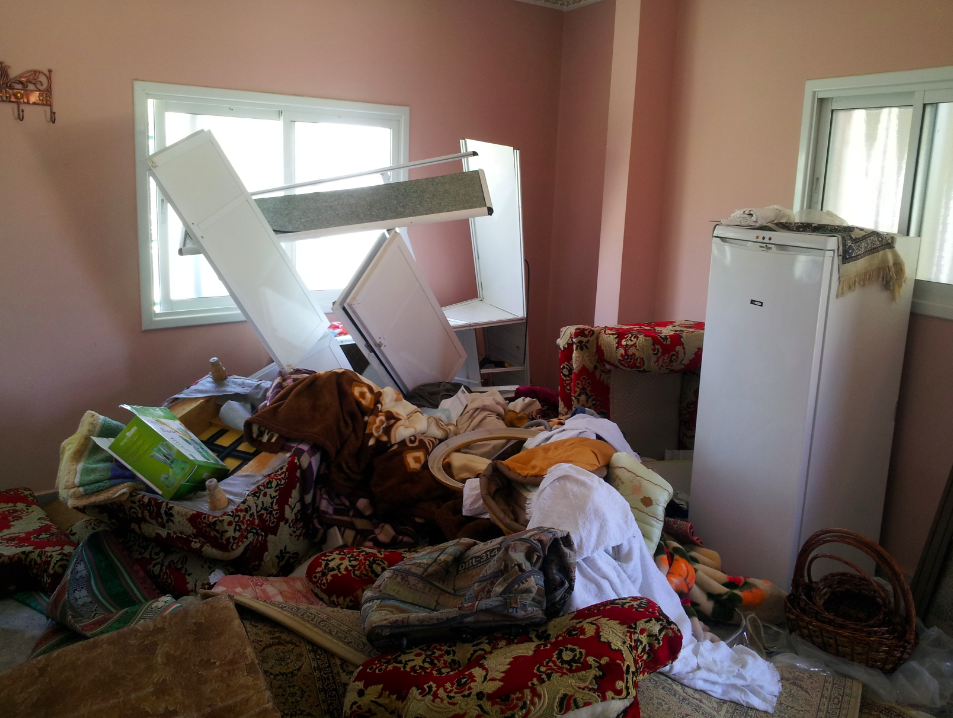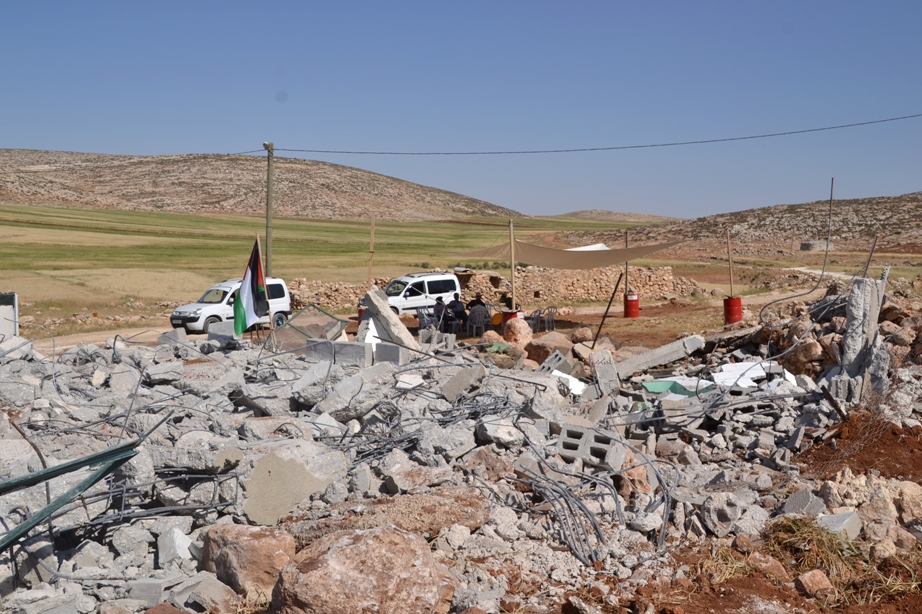Tag: Nablus
-
Israeli forces invade Madama
25th June 2014 | International Solidarity Movement, Nablus Team| Madama, Occupied Palestine At 12:30 a.m. on June 22, 2014, approximately 50 Israeli soldiers invaded the village of Madama. Madama, which is located 10 km southwest of Nablus, in the northern part of the West Bank, has approximately 2000 residents. The soldiers raided close to 100 homes…
-
Photo story: Nablus rally in solidarity with political prisoners
On the 26th of May, more than 500 people joined a demonstration in Nablus in solidarity with Palestinian political prisoners and hunger strikers. Starting from the city’s main square, they then marched through some of the main streets of Nablus. On the 24th of April, over 100 Palestinian political prisoners, many of whom are held under administrative…
-
UPDATED: House demolitions at Khirbet al-Taweel
30th April 2014 | International Solidarity Movement, Nablus Team | Khirbet al-Taweel, Occupied Palestine Update 15th May: On Monday the 12th of May, at 7AM, approximately 350 Israeli soldiers, two buses, and several military jeeps arrived at the remote village of Khirbet al-Taweel and ordered the inhabitants of two houses to remove all furniture in order to proceed with their illegal…



